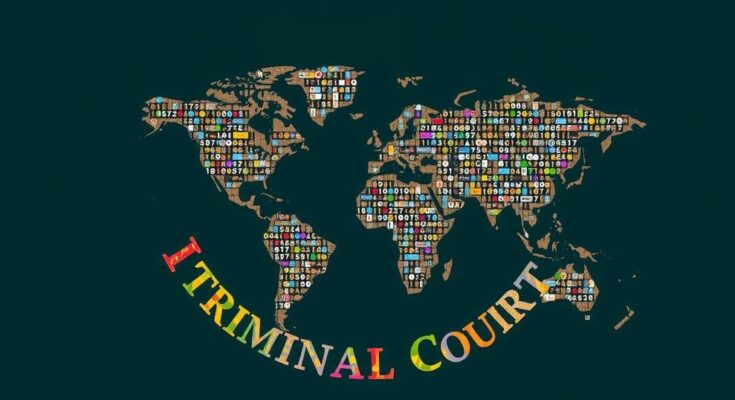The ICC faces challenges in prosecuting war crimes due to underfunding and political resistance, despite recent efforts to pursue high-profile cases like those against Putin and Israeli leaders. However, a growing global movement towards universal jurisdiction and national tribunals may provide alternative avenues for justice, compensating for the ICC’s limitations.
The International Criminal Court (ICC), established in 2002, aims to address atrocity crimes worldwide but has faced significant criticisms regarding its effectiveness. Currently, it has garnered attention as its chief prosecutor, Karim Khan, has issued arrest warrants for prominent figures, including Russia’s President Vladimir Putin and Israeli officials. Despite this opportunity for heightened relevance, the ICC remains hampered by underfunding and political pushback, especially from non-member states, undermining its ability to enforce justice effectively.
Nonetheless, the global landscape for prosecuting war criminals is evolving. The concept of universal jurisdiction is gaining traction among numerous countries, allowing for greater accountability for atrocities, irrespective of where they are committed. Additionally, grassroots initiatives and national tribunals are increasingly targeting local perpetrators, supplemented by international cooperation. This shift indicates a broader, more complex movement toward justice that extends beyond the limitations of the ICC, suggesting that while the court may falter, a collective international effort may succeed in establishing accountability for atrocity crimes.
The International Criminal Court (ICC) serves as a permanent judicial body aimed at prosecuting severe crimes such as war crimes, genocide, and crimes against humanity. It was established to foster justice for victims and deter future atrocities. However, the court faces ongoing challenges, including difficulties in securing arrests and funding, as many nations, notably powerful states like the United States and China, are not members, limiting its jurisdiction. Recent developments, including arrest warrants for high-profile leaders, present an opportunity for the ICC’s influence, but skepticism remains regarding its capacity for meaningful prosecution.
In conclusion, while the International Criminal Court has the potential to play a pivotal role in addressing atrocity crimes, its current operational constraints pose significant challenges for its effectiveness. Nevertheless, there is an increasing global momentum towards accountability for such crimes through alternative mechanisms like universal jurisdiction and national courts. This broader movement may ultimately enhance the prospects for justice, even as individual cases languish within the ICC framework.
Original Source: www.channelnewsasia.com


